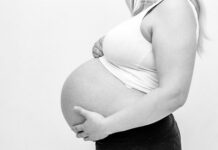A research done by Adriana Mendrek of the University of Montreal and her team, says that menstrual cycle can effect on nicotine cravings. According to the data collected by the researchers, it was found that stronger and incontrollable urges in women to smoke at the starting of the follicular phase that begins after menstruation.
Mendreck said, hormonal reduction of oestrogen and progesterone may stimulate the withdrawal syndromes as well as impact on the neuronal activity linked to craving. She also said that it is easier for women to get rid of the abstinence-linked symptoms during the mid-luteal stage (after ovulation). Because at this stage oestrogen and progesterone level increases.
The researchers selected 34 men and women who smoke more than 15 packets of cigarettes every day. The participants underwent brain MRI and some questionnaires that were taken when they either looked at neutral picture or at the picture designed to urge them to smoke. The experiments were done twice with the women, once at the initial period of follicular phase and at the mid-luteal phase. The hormone oestrogen and progesterone level were also checked.
After the tests, they observed that less than 1 ex-smoker in 10 maintain to stay that way after a year and the women who smoke found it difficult to quit cigarette than men even though they smoke the equal amount. In drug studies also, the researchers noticed that female rats get addicted more quickly. This experiment made Mendrek and her team to conclude that women are at increased risk of addiction and its reason could be sex hormone.
On the other hand, the situation was difficult in case of human. Each smoker has different terms and condition of her/his tobacco use. The common factors which can be taken in consideration are stress, depression or anxiety. Mendrek said that tobacco use in females is increasing significantly.
The scientists mainly focused on two important aspects; first they wanted to check if there is any difference in neuronal circuits’ gender wise. Secondly, to rule out if electro-cortical changes linked with nicotine withdrawal get fluctuate with hormonal variation.
The researchers found no significant difference between men and women in terms of neuronal circuits. The activation pattern varies for the females over the menstrual cycle. Greater activation was observed in the areas like frontal, temporal, parietal during follicular phase whereas lesser activation was recorded in hippocamp in the lueal phase.
Mendrek, the lead of the study, said that this study would encourage the scientists to focus on the biology in designing the research protocol to find the relation between nicotine craving and menstrual cycle.









